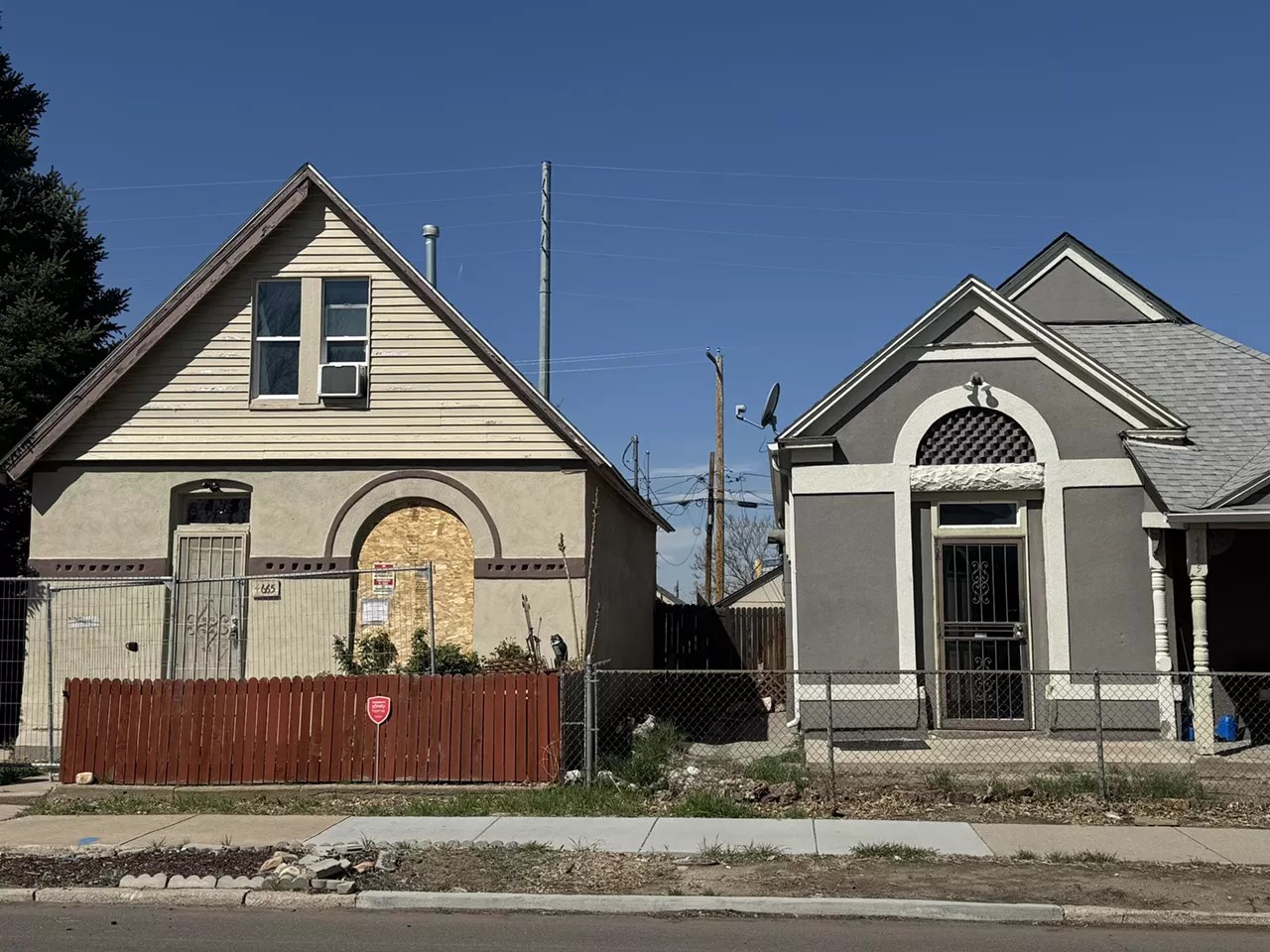
Catie Cheshire

Audio By Carbonatix
If you own a home in Denver, chances are its value took a hit this year. According to a new national real estate report from Zillow, Denver leads the country in major metros where homes lost value over the past year, at 91 percent as of October 2025.
Zillow’s market report says that home prices and values in metros across the western and southern portions of the country have suffered the most, and Denver isn’t alone. Trailing right behind are Austin (89 percent), Sacramento (88 percent), and Phoenix and Dallas (87 percent).
“All told, 49 of the 64 major metros in these regions (those in the top 100 nationally) have had most homes fall in value. In sharp contrast, only three of the 36 major metros in the Northeast and Midwest have had majority declines over the past year,” part of the report says. “While the losses have largely missed the Northeast and Midwest so far, declines are spreading to more homes in all metros.”
Although Denver has the largest share of homes losing value right now, local real estate agents would probably say otherwise — and the Mile High City was closer to the middle of the pack regarding homes that sold for 5 percent less than their previous price tags, at 2.4 percent. In comparison, Austin’s real estate market has seen 11.4 percent of homes sell for 5 percent less than the previous sale, according to Zillow, while San Francisco, where owning a home is still a fantasy for many, has seen 5.2 percent of homes sell for less.
“As concerning as tracking drawdowns can be, what really matters is the previous sale and the next sale,” the Zillow report notes.
Denver isn’t the only notable Colorado city to see a heavy share of homes lose their value. In fact, the Mile High City came in second overall. Zillow’s home value map shows that much of the state has seen a similar downturn, including Pueblo (91.9 percent), Colorado Springs (85.8 percent), Greeley (84.6 percent), Boulder (84.4 percent) and Breckenridge (75.3 percent), among others. The western and southern portions of the state haven’t been hit as hard, however, with about 50.4 percent of Durango homes losing value, 58.2 percent in Steamboat Springs and 46.5 percent in Grand Junction, according to Zillow.
Decreasing home prices aren’t the only financial challenges Colorado homeowners face. Rising property insurance and healthcare costs have also hit the state, and Denver’s monthly inflation rates lead the country. Colorado was also among the poorest-performing states in WalletHub’s economic rankings released this fall, placing third in the worst states for increasing household debt and sixth in the worst states for increasing credit card delinquency. However, Colorado has performed well in other economic indexes. The U.S. News & World Report ranked Colorado’s statewide economy as sixth-best in the nation, basing the list on business environment, labor market and economic growth. CNBC, Forbes and Site Selection Magazine have also recently placed Colorado among the top states for business environments.
According to Zillow, seeing such a large amount of homes lose value isn’t to be ignored, but it’s not necessarily indicative of economic free-fall, either, especially for people who bought their homes before the pandemic.
“Though a cooling labor market and high prices continue to challenge household budgets, for now most homeowners are well able to weather short-term financial turbulence. Those who either bought or refinanced at historically low mortgage rates have stable, low payments, and most home owners have significant equity amassed in their homes,” the report concludes.